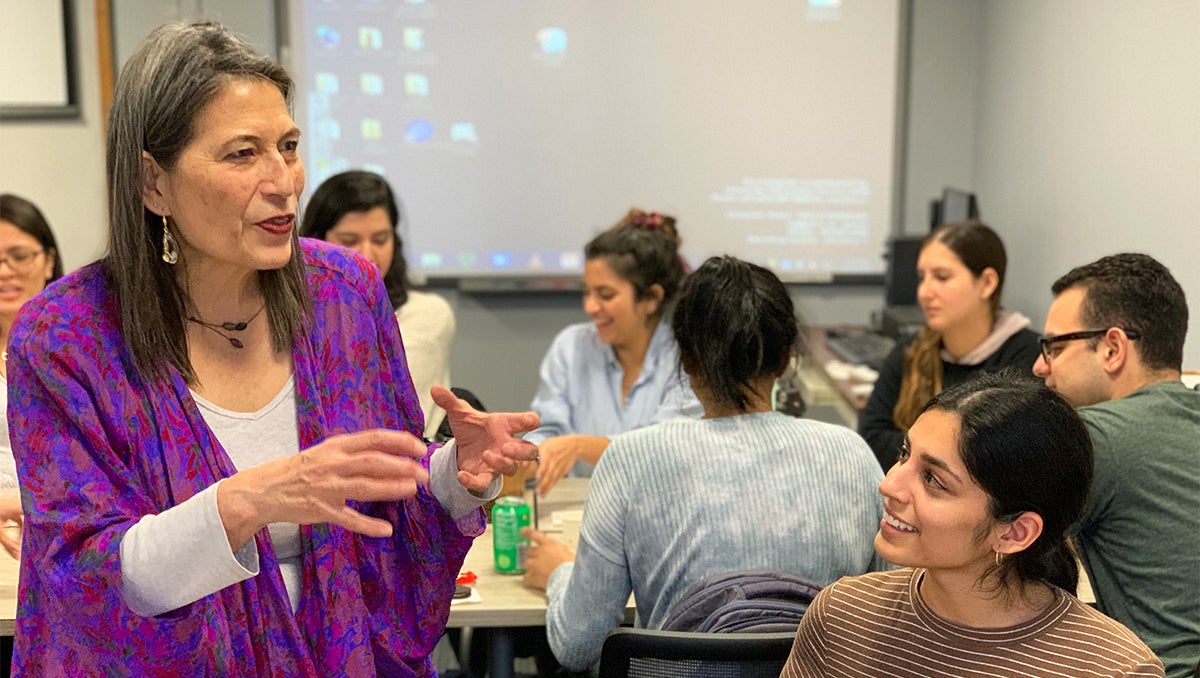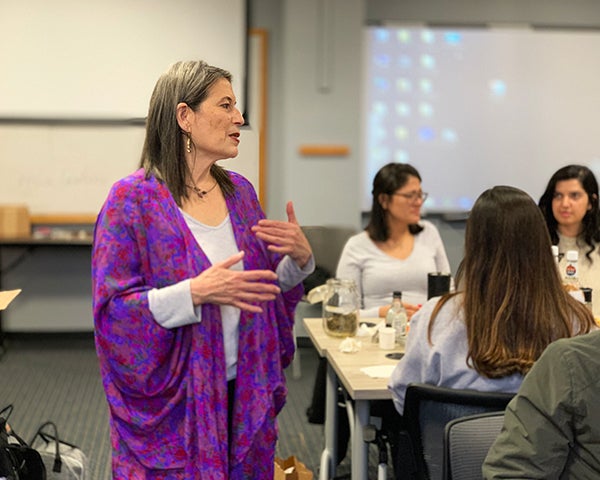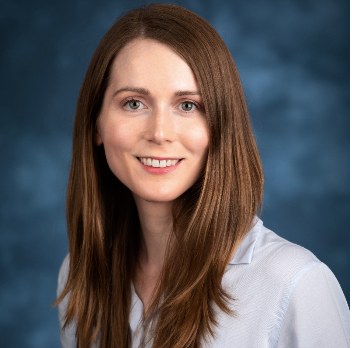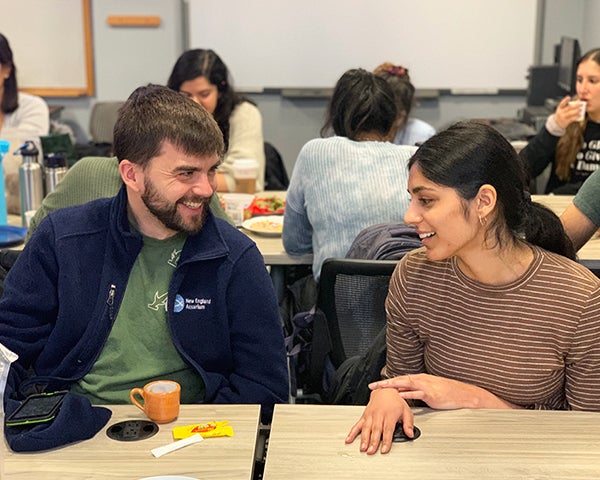New Master’s Program Explores Societal Influences on Health

Posted in GUMC Stories | Tagged medical education, public health, School of Medicine
(February 26, 2020) — Medicine today is said to be “evidence-based” — practiced on the basis of cumulative clinical studies. But for the physicians and researchers involved in launching the newest master’s degree program at Georgetown University, medical evidence isn’t enough.
“Evidence needs to encompass the perspectives of other fields, not just medicine,” says Adriane Fugh-Berman, MD, co-director of the new program, the Master of Science in Health and the Public Interest or HAPI. “That includes psychology, sociology, anthropology, epidemiology, economics and other key fields that influence the health of the public.”
Fugh-Berman, a professor of pharmacology & physiology and family medicine at Georgetown University Medical Center, was asked to develop the degree to prepare students to solve global health problems and help foster cross-disciplinary research that embraces the challenges of the future and addresses complex issues of health equity and social justice.

HAPI can fulfill the needs of students “who are extremely interested in health but don’t want to go the route of conventional medicine,” Fugh-Berman explains. “They understand that health involves more than medicine, and that interdisciplinary work is necessary for advancing health care.”
She worked with Yulia Chentsova Dutton, PhD, an associate professor of psychology and an expert on the cultural shaping of health, to design courses and activities for the one-year degree. Adam Myers, PhD, a professor of pharmacology & physiology and associate dean for graduate education, co-directs the program with Fugh-Berman. Eleven Georgetown faculty agreed to provide instruction on topics ranging from cultural psychology to public policy, epidemiology to business and economics, health communications and health advocacy.
The composition of the faculty reflects an understanding that “there is a lot more going on in medicine than just treating patients and doing research,” says Myers. “People naturally look at things in an interdisciplinary way, and that is very true when it comes to health, wellness and disease and treatment.”
Advocacy Makes the Difference
Now in its second year, Fugh-Berman has indeed found that the students who have sought out HAPI are a “self-selected bunch who are not about applying their talents to the existing system, but who want to change it for the better. They care about the world, and typical programs turn them off to that feeling.”

Graduates of the first HAPI class have found positions at think tanks and the National Institutes of Health, are attending law school or are enrolled in advanced degrees in public health, among other pursuits. During her time in the program, recent grad Emily Alagha conducted research that was published in BMJ (British Medical Journal) Health & Care Informatics. That work assessed the quality of responses from Alexa, Google Assistant and Siri voice assistants (VAs) to consumer health questions about vaccines. The high variability she found pointed out areas of concern for tech developers, health technology experts and patient health educators alike.
“The program, and its students, are trying to bring advocacy into the academic discussion of health care,” Myers says. “Anyone who is involved in health welfare should be an advocate, and if you want to truly make a difference, that involves advocacy.”
Student Perspectives
Current HAPI student Nitika Gupta, who graduated last year from the University of Minnesota-Twin Cities after studying biology and computer science, plans to attend medical school later this year. HAPI offered the perfect preparation for her goal of practicing accessible, equitable medicine when she becomes a doctor.
“I was drawn to the HAPI program because I wanted to supplement my biology-based undergraduate education with a multidisciplinary perspective on illness and disease,” she says. “To be the physician-activist I aspire to be, I needed a more nuanced understanding of the cultural and corporate drivers of health and health care.”

Fellow HAPI student and U.S. Navy veteran Blake Hite already understands what it means to live a life of service. During his eight years in the military, he worked as a hospital corpsman (akin to an EMT but with extra skills). His deployments included Haiti, site of the world’s worst natural disaster (recorded) — the 2010 earthquake that devasted the island country in 2010. He also assisted in the 2014 Yemeni embassy evacuation and with rescuing refugees at sea. During his time in the Navy, he began studying at Harvard University through its Extension School, and after leaving the service attended Harvard full time to study biology, psychology and environmental studies. But that was not enough — while pursuing his bachelor’s degree, he also worked at Harvard Law School on municipal-level greenhouse gas regulations, helped in the department of psychology with post-suicide psychological autopsies of active duty soldiers, and researched the impacts of dredging on protected marine life on Cape Cod.
Hite says he has “wanted to study public health since his Haiti experience, and the opportunity to do that in DC in a small cohort was very attractive. HAPI fit each of these requirements.”
His ultimate goal is to work as an inspector general for the Department of Defense. “But in the short-term,” he says. “I would like to begin working in the health care/environmental health policy and compliance arena.” To complete his HAPI degree, Hite’s capstone project involves investigating a pseudo-scientific disease called “chronic inflammatory response syndrome.”
Both Hite and Gupta name their small and supportive cohort of fellow students as their favorite part of HAPI. “We have become very close, and I can’t imagine studying alongside a better group of people,” Hite says. Adds Gupta, “I like that each of us has a different background and career path — I’ve learned as much from them as I have in class!”
Renee Twombly
GUMC Communications
